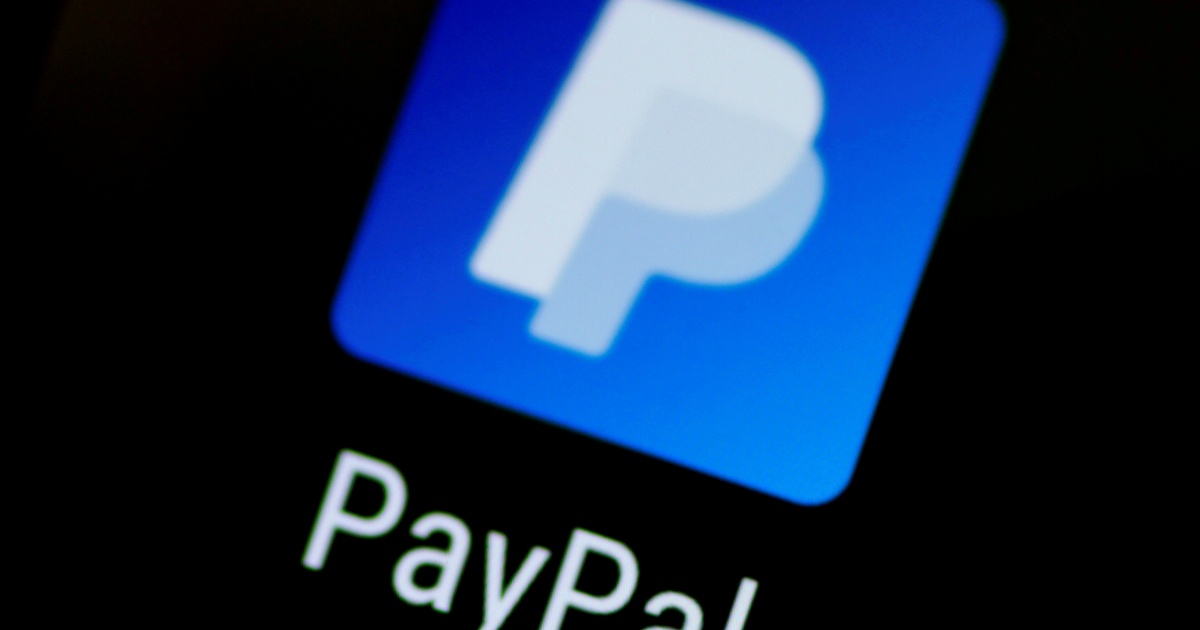Rights groups to PayPal: End discrimination against Palestinians

Groups are demanding PayPal offer its services to the five million Palestinians in the occupied West Bank and Gaza.
Ramallah, occupied West Bank – Palestinian and international rights groups have renewed a campaign demanding that digital payment giant PayPal stop excluding millions of Palestinians from accessing its services.
As part of the #PayPal4Palestine initiative, the Haifa-based 7amleh digital rights group hosted a webinar on Thursday featuring Palestinian entrepreneurs and business managers who have faced obstacles in their careers due to what rights groups describe as “discriminatory practices against Palestinians”.
PayPal is an online money transfer service that operates in more than 200 countries, including war-ravaged Yemen. It offers its services to all Israelis, including those living in illegal settlements in the occupied West Bank, in and around Palestinian villages and towns – but not to the five million Palestinians living in the West Bank and Gaza.
“Palestinians should have a right to use the platform. The platform should not have a right to bar Palestinians from using it,” Nadim Nashif, director of 7amleh, the group leading the campaign, told Al Jazeera.
“Access to platforms, information and the internet more generally are part of digital human rights,” he said.
Among PayPal’s founders is German-American billionaire Peter Thiel, who is also the founder of Palantir, a provider of artificial intelligence predictive policing systems to the Israeli military, used in surveillance and in arresting “Palestinian suspects”. Palantir also has offices in Tel Aviv.
PayPal was also the target of a campaign against the company’s partnership with the US-based Anti-Defamation League (L), which cited the organisation’s “anti-Palestinian and Islamophobic” track record, including against Palestinian civil society actors and human rights defenders.
While PayPal says there are 30 “high-risk” countries it does not operate in, including Palestine, it offers its services in war-ravaged countries such as Yemen, 7amleh pointed out.
“PayPal’s policy not to provide services in Palestine appears to be discriminatory on the basis of their national or ethnic origin rather than location,” it said.
The group has been at the forefront of a series of reports and campaigns since 2016 in hope of pressuring PayPal but have not received any substantive response except for a short statement that year.
PayPal said at the time, “We hope ultimately to be able to address the risk, compliance, regulatory and resource allocation issues to properly serve customers in this region and other markets where PayPal is not yet present in due course.”
Al Jazeera reached out to PayPal for comment but did not receive a response by the time of publication. The story will be updated if one is received.
On Monday, some 55 Palestinian, Arab and international groups – including Ramallah-based al-Haq, the US Campaign for Palestinian Rights and the Palestine Institute for Public Diplomacy – sent an open letter to PayPal President and CEO Daniel H Schulman.
The groups said they “call on PayPal to adhere to international law, and PayPal’s own ethical values and standards, and bring to an end discrimination against Palestinians in the oPt [occupied Palestinian territories] by making its services immediately accessible”.
“Our research has shown that access to PayPal would improve the lives of over 80 percent of Palestinian households, generate employment opportunities for over 42,000 annual college graduates, accelerate the growth of hundreds of small businesses and startups, and facilitate the work of numerous civil society organizations that rely on crowd-funding,” the statement said.
7amleh has also launched a mini site urging users to send a letter to PayPal’s executives and sign a global petition as a form of pressure.
According to Nashif, hundreds of letters have been sent so far. He said 7amleh will be working on advocating the issue to larger institutions such as the World Bank and the United Nations Development Programme (UNDP), which they believe can exert more pressure on the company.
‘Comes out of a need’
Zayne AbuDaka, co-founder of Momentum Labs, a Ramallah-based startup studio, told Al Jazeera that the most affected Palestinians are freelancers who wish to sell their services to the outside world, including web designers, software engineers, translators and designers.
“In a place like Gaza, where there is 60 percent unemployment, freelancing is the only thing youth can do really. It comes out of a need,” he said.
“Since it is already very difficult to export products out of Palestine, many resort to selling their services online”, but face many obstacles, added AbuDaka. “They try to find workarounds, but it’s a struggle. They lose customers and have many cutoffs, or projects fall through.”
Palestinians living under Israeli military occupation and settlement building in Jerusalem, the West Bank and the besieged Gaza Strip, face a myriad of direct and indirect obstacles. These, according to the UN, include “tight restrictions on the movement of people and goods, the systematic erosion and destruction of the productive base, loss of land, water and other natural resources, a fragmented domestic market and separation from neighbouring and international markets”.
Nour al-Saqqa, a freelancer at Gaza Sky Geeks, a coding academy and startup accelerator, said while many Palestinian freelancers have attempted to rely on PayPal in Gaza, they often have their accounts closed and their money frozen with no ability for them to pull it until much later.
“If you have a PayPal account, you can only rely on it when the incoming transfers are not consistent, and are not large amounts. Otherwise, you’re in danger of it being closed,” al-Saqqa told Al Jazeera.
She said people try to find workarounds. “Some people opened accounts on external IPs, and they would charge a percentage for the conversion. When their accounts were exposed as being in Palestine, they got closed,” al-Saqqa added.
Now, said al-Saqqa, many people use Payoneer cards, another workaround, but that PayPal would be a “much easier solution” for them.
Additional reporting by Maram Humaid in Gaza






